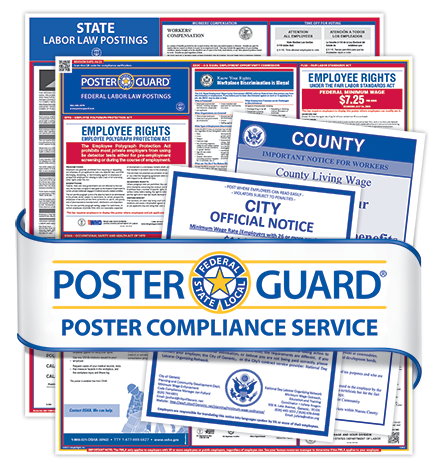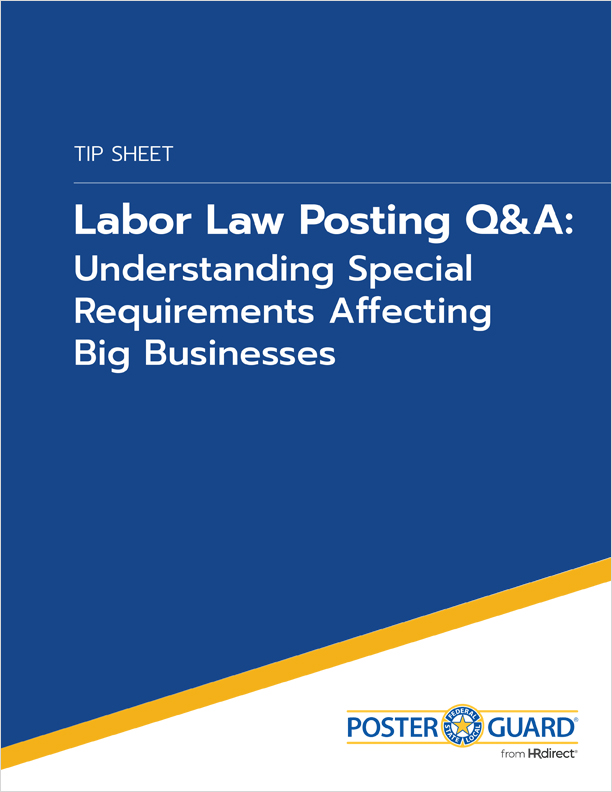One employee complaint. That’s all it takes to trigger a Department of Labor (DOL) investigation. And in most cases, those investigations are due to questionable time and pay practices. There are explicit rules regarding minimum wage, overtime pay, exemption classification and recordkeeping under the Fair Labor Standards Act (FLSA) — and the DOL will step in if the rules are violated. In fact, the Wage and Hour Division of the DOL is one of the most critical labor law enforcement agencies in the nation, responsible for enforcing laws impacting more than 148 million workers.
Are you doing enough to maintain compliance and protect your business? Brush up on the oversights that get employers in trouble – and know your obligations and options should you undergo a DOL investigation.
What Triggers a Department of Labor investigation?
Again, an investigation is typically initiated through an employee complaint made against you. The DOL investigator assigned to investigate normally will not discuss with you the name of the employee (or ex-employee) who filed the complaint, the nature of that complaint, or whether the investigation was even initiated by a complaint because the DOL is entitled to conduct random investigations.
What Are the Common Targets of DOL investigations?
Although the DOL can target anyone for a random investigation, certain categories of businesses tend to be investigated more often. Common targets include low-wage industries, industries with a high rate of wage violations, industries that typically employ vulnerable workers, and industries experiencing rapid changes in growth or reduction. Sometimes the DOL targets certain geographic areas without considering the kind of business or industry.
What Are the Procedures Followed During a DOL investigation?
There are typically five parts to a DOL investigation:
- An initial conference to define the scope of the investigation
- An examination of records to determine which laws or exemptions apply (such as documents showing the employer’s annual dollar volume of business transactions, the employer/employee’s involvement in interstate commerce, work on government contracts, and relevant job descriptions)
- An examination of records subject to recordkeeping requirements
- Employee interviews
- A final conference to address violations and penalties
What Are the Different Types of DOL investigations?
When the DOL has limited resources for its investigations, it won’t always conduct a “full investigation” of every complaint. As a result, the agency has established other options for handling complaints. These include:
- Limited investigation. A “limited” investigation focuses on a particular employee or group of employees, department or division, employment practice (such as child labor violations) and/or a defined time period. A limited investigation does not probe into the employer’s general practices or areas that are not mentioned in the initial complaint.
- Office audit. This approach allows you to produce affidavits and requested documentation at a DOL office and does not involve an on-site visit.
- Self-audit. Some investigators will allow you to conduct your own internal review of the complaints made. In a self-audit, you compute any back wages owed and report the results to the investigator for review.
- Conciliation. In many cases, you and the DOL can consent to a quick resolution, such as payment of back wages to the employee or small group of employees. The matter is then resolved without an investigation.
While it’s up to the DOL investigator to determine the type of investigation to conduct, it’s in your best interest to limit the scope as much as possible, preferably handling it as conciliation or self-audit. By avoiding a full investigation, you will save time and legal costs, and you may have a better chance of avoiding back-wage assessments and other penalties.
Strengthen Your DOL Audit Defense
Here are some additional tips for navigating an investigation:
- Consider some level of legal assistance. Even if you decide to handle an investigation yourself to avoid paying legal fees, you should involve an attorney, on a limited basis, to help you. For example, you may want to have an attorney assess your liability, for settlement purposes, or review documents and written submissions before you submit them to the investigator. At the very least, you should have legal counsel review any agreements, settlements or other binding documents.
- Educate yourself. Regardless of whether you hire a lawyer, you should educate yourself about the investigation procedures and any relevant laws as early as possible in the investigation process. It’s important to know what the investigator has the authority to do and what you may legally be allowed to withhold before agreeing or objecting to the investigator’s requests.
- Clarify the range of the investigation. If an investigator agrees to limit the scope of the investigation or provides a specific description of the scope of the investigation, confirm the information in writing. You may rely on this written confirmation throughout the investigation to challenge requests for anything that is not listed.
Preparation is the key to a successful Department of Labor investigation and to demonstrate you’re following critical time and pay rules.
- Conduct an internal, “defensive” compliance audit. Once you learn you are being investigated, you should determine the status of your compliance with the specific FLSA regulation. You can conduct this audit yourself or with the help of a lawyer. In some cases, if you find the problems and start fixing them immediately, the investigator may overlook earlier violations. In addition, it’s in your best interest to right any wrongs to prevent any lawsuits that could be filed for back pay during the previous three years.
- Gather/preserve documents. Do not destroy or throw away documents connected to the investigation. This could be seen as the destruction of evidence, resulting in a severe penalty. Additionally, most of the records requested in a DOL investigation are covered by recordkeeping laws, and your company could face penalties for breaking these laws as well.
Tips for Avoiding a DOL Audit
While the provided information focuses on how to navigate an investigation, the ideal approach is to prevent labor law violations altogether. Here are some proactive measures employers can take:
- Strengthen Your Compliance Program: Regularly review your labor law practices to identify and fix any issues before they become problems.
- Train Managers and Employees: Regularly provide your workforce with appropriate training to ensure adherence to labor laws and regulations.
- Make Compliance a Habit: Don't treat compliance as a one-time fix. Integrate it into your company culture and daily operations.
- Stay Up-to-Date: Keep yourself informed about changes in labor laws to avoid any unintentional missteps.
Don’t Overlook Posting Compliance
Given the magnitude of government fines and possible legal exposure, it’s vital to remain current with labor law posting requirements. Poster Guard® Compliance Protection gets your business up to date with all mandatory labor law postings — and keeps it that way for an entire year. We guarantee our posters are 100% compliant with all federal, state, county and city regulations; if you’re ever found out of compliance, we pay the fines. It’s an added level of protection that demonstrates good faith in communicating employee rights and upholding your legal obligations, something a DOL investigator will look for when examining your practices.



